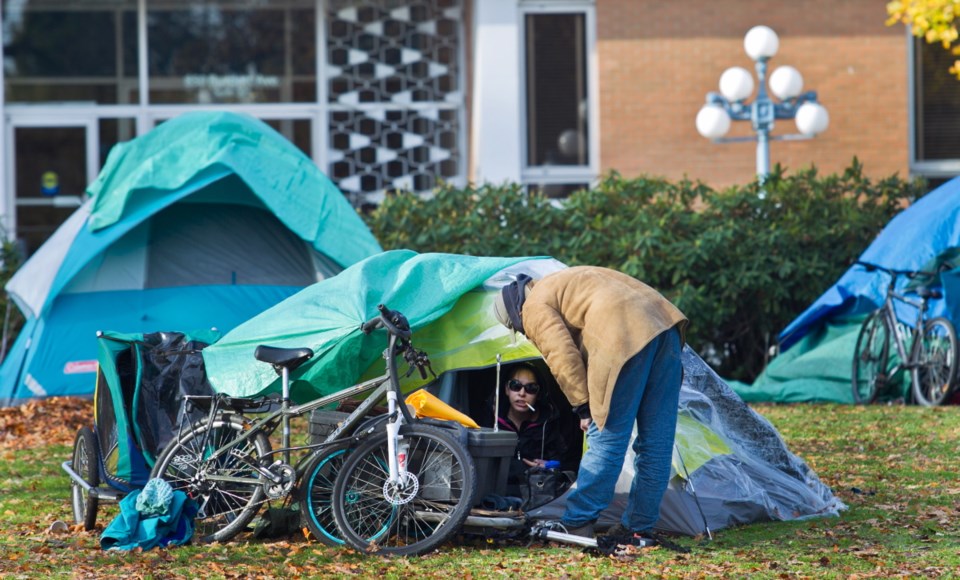Housing in Victoria is growing further out of reach for poor people, employed or not, says a study released Thursday.
The study, called Homelessness in Greater Victoria and completed for the Greater Victoria Coalition to End Homelessness, reveals huge financial barricades for low-income individuals and families to find secure stable housing in Victoria, a city identified in January as the second-least affordable housing market in Canada, after Vancouver.
The report points to a growing gap between the cost of housing, rents or purchase prices, and the money brought home by people in low-paying jobs or on social assistance.
“Not only have vacancy rates decreased in most municipalities within the [capital] region, but rental rates have increased, making it extremely difficult for low-income earners,” the 26-page report says.
Homelessness has become a high-profile issue in Victoria as a tent city grows on the lawn next to the courthouse downtown.
Victoria police estimate the number of people living outside ranges from 70 to 100 people, including about 65 at the courthouse.
But the housing report makes it plain the crisis goes beyond those living in tents.
Marika Albert, co-author of the report, said what struck her was the gap between B.C.’s minimum wage — $10.25 an hour — and social assistance, and the cost of a bachelor apartment in Victoria, averaging about $720 a month.
Even working full time, a minimum-wage earner would pay 47 per cent of his or her total wages on housing, well above the 30 per cent considered sustainable and healthy by agencies such as the Canada Mortgage and Housing Corp.
About 20,000 Victoria households spend more than 30 per cent of their family income on housing, the report says, while 1,500 people are on the Housing Registry waitlist, looking for assistance to find affordable housing.
Life on social assistance is even more stark.
For example, a single man with disabilities receives $841 a month. After paying the average rent on a bachelor suite, $720, and the average monthly cost for food, $314, that person would already be in a deficit of $193 — forcing him to make tough choices about where the money will go.
“It’s unacceptable for people to have to decide between paying their hydro bill versus paying their rent or what kind of food they will eat,” Albert said.
While the report indicates the number of people relying on food banks in Victoria has dropped slightly, agencies such as Our Place are finding it tough to meet the demand.
Grant McKenzie, Our Place spokesman, said winter always brings more people to the agency, which is serving up to 2,000 meals a day. On a recent morning, 463 people received breakfast — a new record.
Like all social agencies, Our Place could use some help, McKenzie said.
“We really need financial support to make sure people have the right supports in place,” he said.
Anyone interested in helping can go online to ourplacesociety.com.



